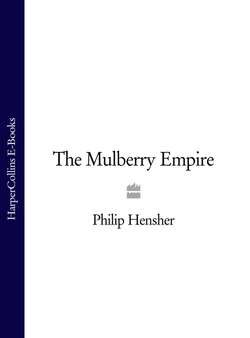Читать книгу The Mulberry Empire - Philip Hensher - Страница 30
6.
ОглавлениеIn the Duchesse de Neaud, the infection represented by Burnes’s book had found a fertile carrier; truly a carrier, one might say, since she passed on the main features of the contagion without proving profoundly susceptible to the virus itself. Like those wealthy invalids who complain bitterly of an influenza while all the time suffering far less than those to whom they will pass on the illness, she made a great deal of noise for a season on the subject of the central Asian principalities, and, having stirred up a great deal of pained opposition and concern, was satisfied to forget the subject and never again mention Burnes, Kabul or Bokhara with her former fervent tones.
The weather in London changed, quite abruptly. The streets dried into dust which settled like a veil over everything; fruit from the market seemed to have been stored for centuries in the dungeons of some belle au bois dormant, so thick did the dust of the streets disguise the bloom of the fruit. The Season began, all at once, to come to an end. There were a few landmarks by which the Season might be considered concluded, but it felt like a rapid collapse of business, and not a cleanly marked boundary. There was no doubt that after the Court had withdrawn, after the last Drawing-Room, after the old Duke’s Summer Ball, there was no Season but a hastily convened retreat, as every house from Park to Park resounded with the beating of carpets, the single occupation of dustsheeting furniture and the sealing-up of trunks, in so much grim-faced hurry that a stranger might have concluded that a marauding army was hammering at the gates of the city, and not merely the unimagined, unexperienced phenomenon of an August in London. But at a certain moment in the year, it was clear that the Season had lost what purpose it had. Perhaps – Bella thought – it ended as soon as an acquaintance remarked, however casually, that he was leaving town early this year. The next day, in fact. The thought presented itself with an attendant melancholy which was quite unfamiliar to her. Never before had the simple fact of having to leave London struck her as so sad a loss, so devastating a revelation of what she must always have known, that the round of parties and Park and dinner was, in truth, at best wearisome and at worst a stale and unprofitable waste of existence. It made no sense to her, to feel like this, and yet that was how she felt. She could only understand it by thinking that, after the last steamy night at the opera, after the last agonizing Drawing-Room, some wardrobe-faced courtier prodding you in the back and your ostrich feathers shedding by the minute, there would be no more Burnes. She understood that very well. He was this year’s novelty, and next year there would be another.
The idea of a different state presented itself to her; the idea of an August where Bella and Burnes together could walk the empty London streets, their happiness observed only by costermongers.
For Bella, now, in this year of Grace, the idea of her departure from London with so much unsaid – even granted that she did not know what she would say, even if she could say it – brought to mind images of collapse. Soft yielding sand, collapsing inwards in an hourglass; a bathful of water sliding unstoppably into the drains; Bella alone, in the drawing room at Hanover Square, hearing only the clink and knock of the opium tantalus in the sounding empty house, waiting for departure, and nothing else.
In these last days, there was so much to be done, and the preparations for the months in Gloucestershire were as detailed and solid as for a siege. Gloucestershire was all very well, but there was much which could not be acquired there at any price. For the long siege of dullness, dictated by the fashion which would separate Bella so irresistibly from Burnes, food was needed. The current books, French novels for upstairs, English for the drawing room, old Italian poetry for the library; these things would represent a brave assault on the grim boredom of a Gloucestershire afternoon. New clothes, naturally; it was astonishing how much time could be stolen from the long day by bathing and dressing, but the trick only worked if there were new bonnets, new dresses to hand. Other than that, there remained the resort of driving about the countryside, calling on families; even a country curate’s wife, however crass or absurd, would serve to alleviate the ache of ennui as swiftly as her father’s unvarying solution. Other amusements were now closed to Bella. Fishing with worms, digging for treasure in the rose garden, dropping grandpapa’s folios from the battlements into the moat with a still memorable, pleasing, deep-sounding plop! – these were things, not newly forbidden to Bella, since they had always been clandestine activities, but since she had grown up and begun to blush, some inner sense, not of decorum but of absurdity, forbade her these previously delightful entertainments. So it was that, to beguile the long August days, purchases had to be made, and Bella and Elizabeth found their last weeks in Hanover Square taken up with visits to the drapers, to the booksellers, in search of some prospective amusement.
